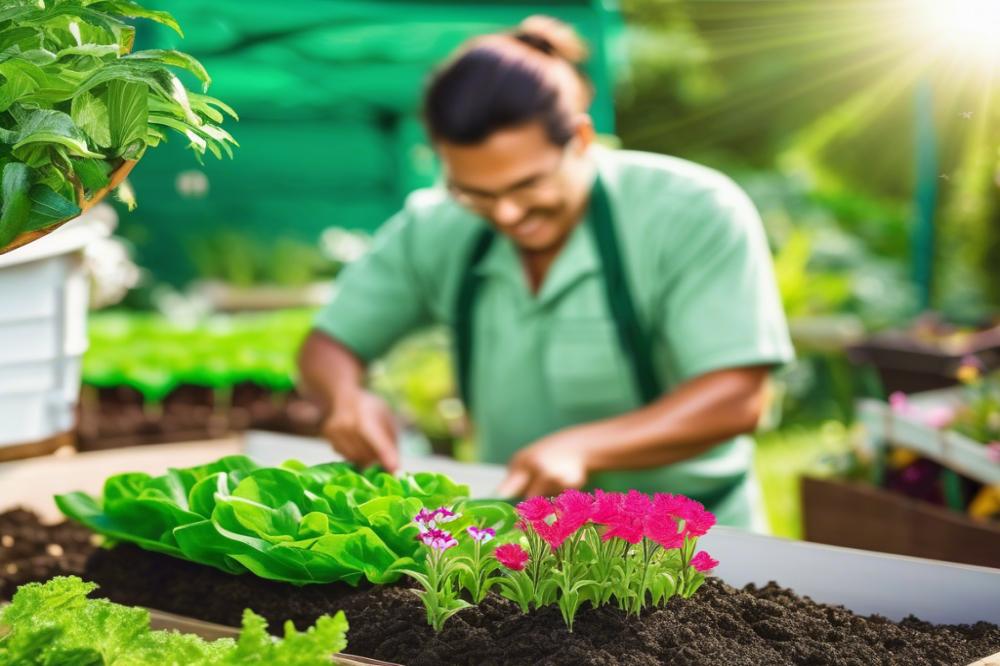The Role of seaweed extract in pest-resistant plants
Pest management is a critical issue facing organic farming today. Farmers strive to maintain plant health while avoiding harmful chemicals. They need solutions that support natural pest control without compromising soil health. This balance is vital for sustainable agricultural practices. With an increasing emphasis on eco-friendly agriculture, pest-resistant plants are becoming more popular.
seaweed extract serves as a promising biostimulant in this context. Derived from marine sources, it enhances growth and resilience in crops. This natural product boosts stress tolerance, allowing plants to thrive even under adverse conditions. It plays a role in increasing crop yield and overall quality. Farmers are turning to such options to maintain productivity without harmful pesticides.
Incorporating eco-friendly practices in agriculture is more than a trend; it’s a necessity. The world is becoming more aware of the need for environmental sustainability. Farmers adopting these practices contribute to healthier ecosystems. They promote not just their own crops but also the health of the soil and surrounding environments. As we explore the role of biostimulants like seaweed extract, we must recognize their potential to revolutionize pest management and support organic farming goals.
Understanding Seaweed Extract


Seaweed extract is a concentrated liquid or powder derived from various types of seaweed. It includes a mix of minerals, vitamins, and plant hormones that support plant health. This product is increasingly recognized for its role in promoting agricultural sustainability and enhancing crop yield.
Definition and Composition
The composition of seaweed extract can vary greatly depending on the species of seaweed used. Most commonly, it consists of essential trace elements, amino acids, and natural biostimulants. These components help plants resist stress and improve overall growth.
Types of Seaweed Used in Agricultural Applications
Different types of marine extracts are utilized in farming. For instance, kelp is a popular choice due to its rich nutrient profile. Other varieties include Ascophyllum nodosum and Laminaria – known for promoting healthy soil and strong plants.
Nutritional Components That Contribute to Plant Health
Several nutritional components found in seaweed extracts contribute significantly to plant growth. For example, the presence of alginates helps with water retention in the soil. Additionally, micronutrients such as iron and magnesium enhance stress tolerance in plants.
Amino acids present in these extracts stimulate the production of beneficial substances in crops. These can improve their resistance to pests and diseases, making them ideal for organic farming. Overall, using seaweed supports eco-friendly agriculture practices and can lead to healthier soils.
The Mechanism of Action of Seaweed Extract in Pest Resistance


Researchers are increasingly focusing on how seaweed extracts contribute to the pest resistance of plants. This natural product boosts plant health through multiple pathways. It’s like giving plants a boost to help them handle stress better. Enhanced stress tolerance means that plants can endure challenges like drought or pest attacks more effectively.
How Seaweed Extract Enhances Stress Tolerance in Plants
Part of the magic comes from the nutrients in marine extracts. They contain compounds that trigger stress-related genes within the plants. This activation leads to increased production of protective compounds. As a result, plants become tougher and less susceptible to various pests and environmental challenges. Research indicates that when plants are treated with these extracts, they can manage stress better. Their ability to withstand adverse conditions improves remarkably.
The Role of Marine Extracts in Plant Defense Mechanisms
Pest defense doesn’t just rely on chemical repellents. Instead, marine extracts can enhance the plant’s own defense mechanisms. They help plants produce secondary metabolites that serve as natural pest control agents. These compounds can deter pests or even disrupt their lifecycle. Additionally, plants begin to recognize and react to threats more rapidly. This heightened awareness can be crucial for their survival.
Interactions of Seaweed Extract with Beneficial Soil Microorganisms
Healthy soil leads to healthy plants. Seaweed extracts often promote beneficial soil microorganisms. These microorganisms improve soil health by enhancing nutrient uptake for plants. Stronger root systems can access more water and nutrients. This interaction not only benefits the plants but also contributes to agricultural sustainability. Using such organic methods aids in developing eco-friendly agriculture practices.
Overall, the use of biostimulants like these plays a significant role in increasing crop yield. By combining enhanced plant vigor with natural pest resistance, farmers can create a more effective system. Thus, integrating marine extracts into farming practices offers promising benefits for both plants and soil.
Benefits of Seaweed Extract for Natural Pest Control


Using marine extracts can be a game-changer in how we approach pest management. Promoting plant health is key for any farmer who wants to see improved crop yields. Healthy plants are more resilient. They can withstand pests and diseases better than stressed crops. This natural pest control method creates stronger plants.
Another major advantage involves the reduction of chemical pesticide use. Many farms today are looking for ways to minimize their environmental impact. Organic farming has grown in popularity, and biostimulants play a significant role in this shift. By enhancing soil health, these natural substances support eco-friendly agriculture practices.
Several case studies demonstrate how effective marine extracts can be in managing pests. In one instance, a farmer reported notable success after applying seaweed treatment. Their crops showed remarkable stress tolerance during a drought, which also kept pests at bay. These outcomes highlight the value of integrating natural solutions in agricultural practices.
Farmers who shift toward sustainable methods often see a positive trend in their yields. Stress management becomes easier, and the dependency on chemical treatments decreases. The future of agriculture could hinge on these alternative solutions. As the world seeks to balance food production and environmental protection, eco-friendly options will become increasingly important.
Agricultural Sustainability Through Seaweed Extract


Integrating marine extracts into farming practices is becoming increasingly popular among organic farmers. These natural solutions contribute to agricultural sustainability by promoting healthier plant growth. By utilizing biostimulants derived from seaweed, farmers can enhance soil health. This process can lead to increased biodiversity in the fields, which is essential for a thriving ecosystem.
Many studies reveal that using these natural products improves plant health. When plants are healthier, they naturally become more resilient against pests and diseases. This offers a form of natural pest control that reduces reliance on synthetic chemicals. Farmers embracing this eco-friendly agriculture method often report higher crop yield, too.
Furthermore, marine extracts support stress tolerance in plants. When crops face challenges such as drought or nutrient deficiency, these extracts help them cope. This ability results in stronger plants that not only survive but thrive in adverse conditions. Without doubt, improved resilience can lead to more fruitful harvests.
The economic viability of using seaweed treatment is also important for organic farming. While the initial investment may be higher, the long-term benefits can outweigh the costs. Healthy soil and resilient plants can decrease losses from pests and harsh weather. Therefore, farmers who adopt these practices often see a return on investment over time.
In summary, integrating seaweed extract into sustainable farming is a practice with numerous benefits. Through enhancing soil health and providing natural pest control, farmers can contribute to a more sustainable future. This holistic approach not only fosters a healthier environment but also supports the livelihood of those in agriculture.
Practical Applications of Seaweed Extract in the Garden
Methods of Applying Seaweed Extract to Plants
Applying seaweed extract can vary based on your gardening preferences. Liquid forms are popular. You can spray or water plants directly with diluted solutions. Follow the label on your product, as concentrations can differ. Additionally, soaking seeds in a mix before planting can promote robust growth. Foliar feeding is another option. This method allows nutrients to penetrate leaves quickly. For best absorption, target the early morning or late afternoon when temperatures are cooler. Consistent application can boost plant health and resilience.
Homemade Recipes for Organic Pesticides Using Seaweed
Creating your own pesticide is simple and rewarding. Start with marine extracts. Combine dried seaweed with water for a concentrated mix. Let the mixture steep for at least 24 hours. Strain it, and you get a natural pest control solution. Adding garlic or neem oil can enhance its effectiveness. These ingredients will help repel unwanted insects while being safe for beneficial ones. Keep the mixture in a spray bottle for easy application. Remember to apply it during cooler parts of the day to avoid harming sensitive plants.
Best Practices for Incorporating Seaweed Extract in Crop Rotation
Crop rotation can significantly influence your soil’s health. Incorporate marine extracts as part of this practice. Begin by applying it to the soil before planting your next crop. This improves the nutrient content and encourages stress tolerance in plants. Pairing different crops can naturally reduce pest issues. Diverse plantings disrupt pest life cycles and support agricultural sustainability. Regularly using seaweed solutions helps build a healthier soil ecosystem. It contributes to higher crop yields across seasons. Always observe how your plants respond, as some may thrive more than others.
Final Thoughts on the Benefits of Seaweed Extract in Pest Resistance
The use of seaweed extract in agriculture highlights its benefits for promoting pest-resistant plants. This natural approach provides plants with essential nutrients that strengthen their defenses against pests. Improved plant health is vital for sustaining crops in organic farming. Farmers often seek effective, eco-friendly solutions, and this offers a promising method for natural pest control.
Adopting seaweed as a part of agricultural practices can significantly contribute to the overall resilience of plants. As pressures from pest populations continue to rise, it becomes increasingly important for farmers to explore alternatives to chemical treatments. A richer soil environment, enriched with seaweed, supports a healthier ecosystem, ultimately benefiting plant growth.
Encouragement for organic farmers to integrate these practices can lead to long-lasting advantages. Utilizing seaweed extracts may minimize reliance on synthetic pesticides while fostering biodiversity. It cultivates a balance in nature, allowing beneficial insects to thrive alongside crops. For farmers dedicated to sustainability, this is an opportunity to make a meaningful impact.
The future of eco-friendly agriculture lies in solutions that respect the environment. Current trends show a shift towards sustainable pest management practices. With innovative approaches like this, we can maintain productivity without sacrificing the planet’s health. Embracing natural methods will be crucial as we face the challenges of modern agriculture.



